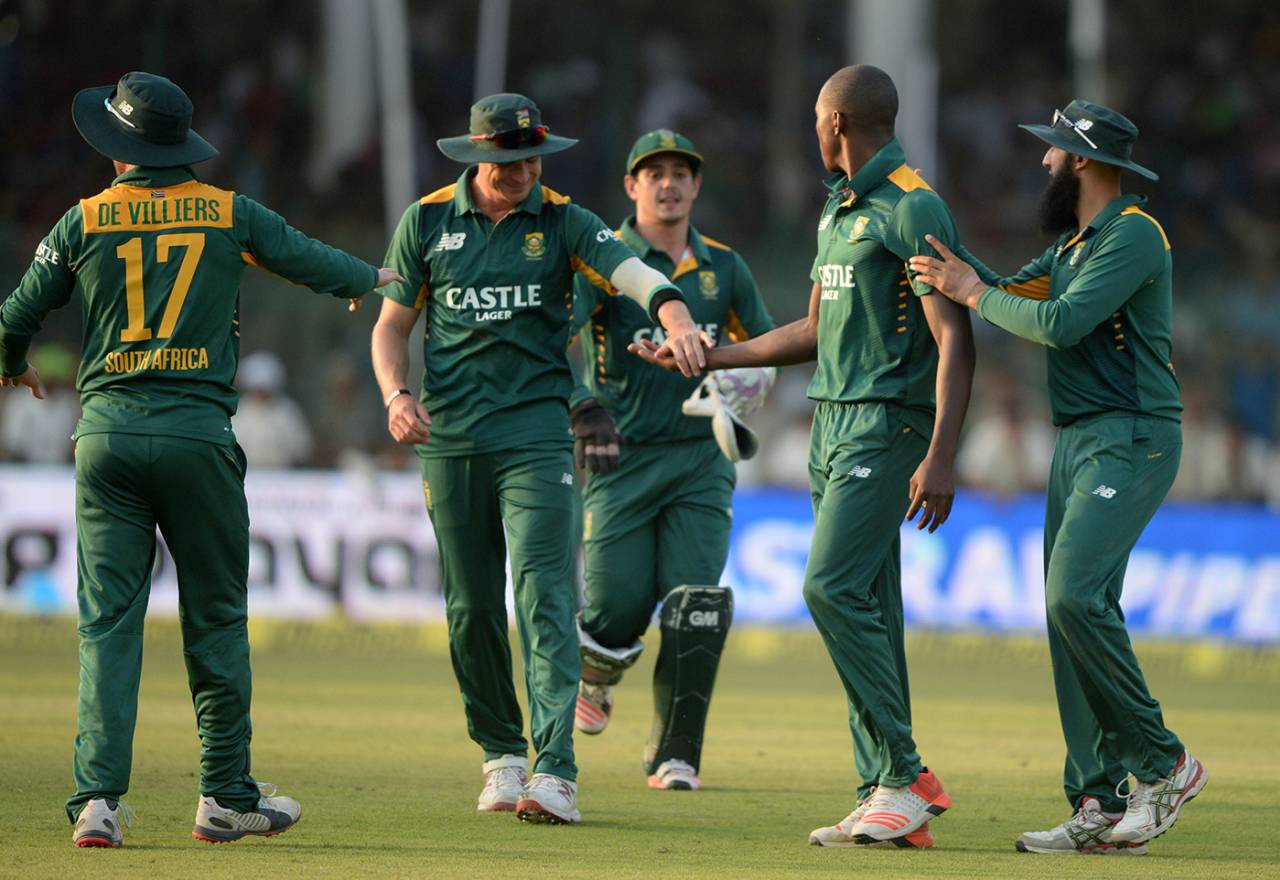There's every reason to believe that in
Kagiso Rabada and
Quinton de Kock, South African cricket has discovered two players to pin its long-term hopes on. Both from Johannesburg, they hail from very different backgrounds. Rabada's father is a general practitioner. His son was a day boy at the expensive St Stithians College in Randburg, a school that has done much to resuscitate its cricketing fortunes in recent years by awarding boys there bursaries, which Rabada didn't have.
De Kock's early sporting life took place not far away, where as a youngster he played baseball - generally a blue-collar game here in South Africa - for the Randburg Mets. There he paired up with Gift Ngoepe, the son of a domestic worker who lived in the Mets' clubhouse, forging a close friendship. While Ngoepe has gone on to play professionally as second baseman for the Pittsburgh Pirates, de Kock quickly left baseball behind, becoming a boarder at King Edward VII School in central Johannesburg. Only the easy left-handed slugging from the diamond remained. Most other things - like playing squash or writing - he did with his right.
Apparently de Kock was not as trim then as he is now. "He was quite a chubby kid in his first year of 1st team cricket," says Eugene Marx, long-time cricket master at King Edward. "I remember the 1st team rugby coach taking Quinton and another boy, Malcolm Nofal, for running round the rugby field with sandbags around their necks."
In wintertime de Kock played hooker in what were usually B rugby teams. He ditched rugby for squash when he made his 1st XI cricket debut as a 16-year-old, according to Marx, opening the batting, keeping wicket and making 55 against Grey High on a tour to Port Elizabeth. He remains more than capable on the court. A question about his academic prowess met with slight defensiveness, Marx saying that as he never taught de Kock, he can't comment. In summary, it is probably fair to say that "Quinny" had only notional regard for his studies. Likely they just got in the way.
De Kock and Rabada - they are three years apart - might best be understood as classic millennials. They've both brought incredible confidence and self-belief to the summer, a fearlessness that stands at odds with the culture of caution that has prevailed in South African cricket for so long. This culture can occasionally be threatened or tested, as it was in Sunday's
fifth ODI against England at Newlands, the series locked all square at 2-2, but it is usually maintained.
Under duress, and with the series in the balance, suddenly AB de Villiers and Russell Domingo became creative. They hatched a leg-theory plan for the dangerous Joe Root and told Chris Morris to bowl fast and short. Later in the day the series was won, so rescuing a labile, up-and-down summer, but there is good reason to ask why our cricket is so doggedly resistant to adventure and change.
These two are supple and savvy. They bring flexibility and a latent sense of optimism to the game
From "KG" and Quinny, though, a new dynamic. In KG's case it's remarkable to consider that his figures after Ben Stokes and Jonny Bairstow's plunder in the Test
at Newlands were 3 for 175. Most would have retired to the anonymity of an eight-hour shift at the local call centre or the comfort of the bathroom - for a long time. Not the kid whose teenage fans offer to #twerkforrabada.
De Kock's recent travails have followed a similar (albeit less brutal) pattern, including a rum World Cup and a subsequent period in the wilderness with the South Africa A side in India last winter. No matter. These two are supple and savvy. They bring flexibility and a latent sense of optimism to the game. It stands at an exciting angle to the dominant culture of safety-first cricket that has prevailed in South African sides for too long.
When you pare away all the bluster, this, really, is South Africa's problem. It is not race and the onerous racial numbers at first-class level, which have seen a spike in disciplinary hearings this season. It is not selection, or the composition of the board, or the fact that Cobras, the franchise that hosted Sunday's series-winning ODI, limps along without a sponsor. The elephant in the room is South Africa's very tangible fear of failure, our almost pathological insecurity. In their different ways, KG and Quinny are changing this culture from within, bringing their gifts, yes, but what also amounts to a sophisticated cricketing philosophy. A keeper and a smart quick from the same town, they remind me of Rod Marsh and Dennis Lillee's irresistible rise into the Australian Test side of the early seventies. From Perth, Marsh played in the opening Ashes Test of the 1970-71 series against Ray Illingworth's side, Lillee joining him for the sixth, making his debut in Adelaide with 5 for 84.
The parallel isn't precise but it is revealing. Like the two foul-mouthed Aussies, de Kock and Rabada have a similar opportunity to change the course of their nation's game.
